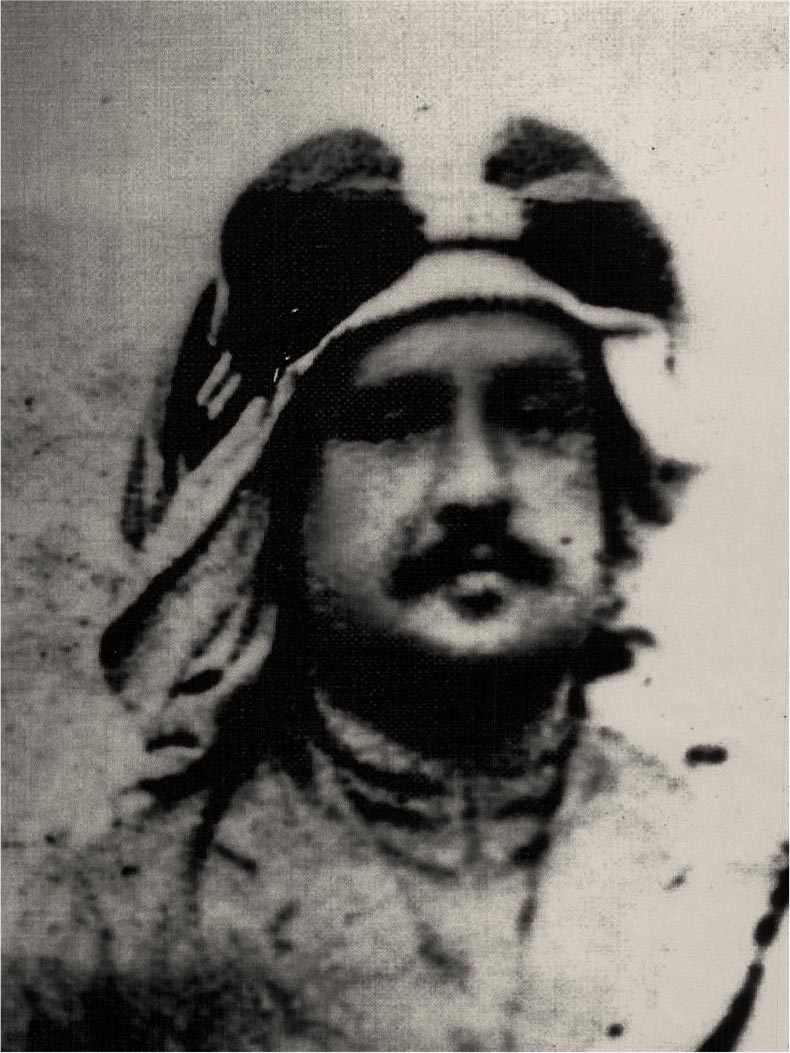Shaikh Duaij bin Salman Al Sabah
b 1888, d 1939

Shaikh Duaij bin Salman Al Sabah was brought up by His Highness the former Emir Shaikh Salim Mubarak Al Sabah, his father having died when he was about thirteen years old. Duaij defended Kuwait from the Saudi Ikhwan and the spread of Wahhabi revivalism during the Kuwait-Najd battles in 1920. He was also part of a committee to defend Kuwait, led by His Highness the former Emir Shaikh Salim Mubarak Al Sabah.
The battle of Hamdh took place from 18-24 May 1920. Following the First World War and the collapse of the Ottoman empire, the Ikhwan in Saudi Arabia planned to take over the whole of the Arabian Peninsula. They attempted to establish a stronghold south of Kuwait, at Jarriya al-‘Ulya, under Ibn Shuqayr. The Emir sent a force of 100 Kuwaiti cavalry and 200 Kuwaiti infantrymen commanded by Duaij to dislodge them. Ibn Shuqayr sent a plea for help to Faisal Al Dawish, the leader of the Ikhwan. The Kuwaiti forces were vastly outnumbered by Al Dawish’s 2,000 Ikhwan fighters, but they held out for six days. The Kuwaitis suffered heavy losses with the wounded being treated with salt and water as no medicine was available.
Following the battle of Hamdh, His Highness the former Emir Shaikh Salem Mubarak Al Sabah decided to construct a five mile wall around Kuwait to protect the city (the third wall), which began the following month during Ramadan and involved most of the inhabitants of Kuwait. Within less than five months the battle of Al Jahra took place on 10 October 1920.
The Kuwaiti forces were led by the former Emir himself, His Highness the former Emir Shaikh Salem Mubarak Al Sabah; Duaij was one of the cavalry commanders in the battle. A force of 3,000-4,000 Ikhwan attacked and besieged the Red Fort at Al-Jahra, which was defended by 1,500 Kuwaitis. The Kuwaiti forces fought bravely and repulsed the Ikhwan attack, allowing time for the Emir to call in help from British troops, who provided airplanes and three warships ending the Ikhwan attacks.11
The Kuwait-Najd battles were ended by the Uqair Protocol of 1922, which defined Kuwait’s current boundaries.
The battle of Hamdh took place from 18-24 May 1920. Following the First World War and the collapse of the Ottoman empire, the Ikhwan in Saudi Arabia planned to take over the whole of the Arabian Peninsula. They attempted to establish a stronghold south of Kuwait, at Jarriya al-‘Ulya, under Ibn Shuqayr. The Emir sent a force of 100 Kuwaiti cavalry and 200 Kuwaiti infantrymen commanded by Duaij to dislodge them. Ibn Shuqayr sent a plea for help to Faisal Al Dawish, the leader of the Ikhwan. The Kuwaiti forces were vastly outnumbered by Al Dawish’s 2,000 Ikhwan fighters, but they held out for six days. The Kuwaitis suffered heavy losses with the wounded being treated with salt and water as no medicine was available.
Following the battle of Hamdh, His Highness the former Emir Shaikh Salem Mubarak Al Sabah decided to construct a five mile wall around Kuwait to protect the city (the third wall), which began the following month during Ramadan and involved most of the inhabitants of Kuwait. Within less than five months the battle of Al Jahra took place on 10 October 1920.
The Kuwaiti forces were led by the former Emir himself, His Highness the former Emir Shaikh Salem Mubarak Al Sabah; Duaij was one of the cavalry commanders in the battle. A force of 3,000-4,000 Ikhwan attacked and besieged the Red Fort at Al-Jahra, which was defended by 1,500 Kuwaitis. The Kuwaiti forces fought bravely and repulsed the Ikhwan attack, allowing time for the Emir to call in help from British troops, who provided airplanes and three warships ending the Ikhwan attacks.11
The Kuwait-Najd battles were ended by the Uqair Protocol of 1922, which defined Kuwait’s current boundaries.

Shaikh Salman bin Fadhil Al Sabah
b. 1908

Shaikh Salman bin Fadhil Al Sabah was the great grandson of Shaikh Sabah bin Duaij bin Salem Al Sabah. He was Commander of the Town Guard from 1938-45, succeeding Shaikh Sabah Al Suq.

Shaikh Khalid bin Duaij Al Sabah
b 1933
In September 1989, Shaikh Khalid Duaij Al Sabah was appointed by
His Highness the former Emir Jabir Ahmad Al Sabah as one of 16 members of a committee to carry out the duties of the Municipal Council of Kuwait. Following the liberation of Kuwait, the Emir reappointed Shaikh Khaled as a member of the Municipal Council in July 1991. The Municipal Council, which was established in 1932, is in charge of the provision of local services in Kuwait City, such as roads, urban planning, garbage collections and sanitation.

Shaikh Salman bin Duaij Al Sabah
b 1939
Shaikh Salman Duaij Al Sabah is an eminent figure in the modern history of Kuwait. In addition to his considerable contributions in the political, social and cultural spheres, his prominent role in establishing the current legal infrastructure in Kuwait stands out as a major achievement.
Salman was appointed Minister of State for Legal and Administrative Affairs in 1976 and subsequently Minister for Justice, Legal and Administrative Affairs in 1981. During this time, he carried out a wholesale reform of the Kuwaiti legal system, leading to a legislative renaissance in the country. Until that time, despite the country’s independence, Kuwait was still applying the Ottoman civil code, known as the Mecelle. Regional and international events made legislative and administrative reforms during this period challenging.
Salman established specialized and technical committees to study and review all the existing legislation, enacting new legislation where necessary in order to bring Kuwaiti law in line with advanced legal systems. He began by implementing the Social Security Act 61/1976, establishing the Public Institution for Social Security, and in 1979 enacted the Civil Service Act 15/1979.
1980 was a year of huge legislative reform. Salman issued the Civil Code by decree No 67/1980, to replace the Ottoman legislation, the Mecelle, the Commercial Code by decree No 68/1980 and the Maritime Trade Code by decree No. 28/1980. In addition, he enacted important laws for the system and procedures of courts, notably the Civil and Commercial Procedures Law by decree No. 38/1980 and the Law of Evidence in Civil and Commercial Articles by decree No. 39/1980. The Personal Status Law No. 51/1984 should also be mentioned.
These laws marked an unprecedented leap forward for the country. They were enacted in less than a decade under Salman with the approval of the National Assembly. Collectively they constitute the fundamental laws for Kuwait today.
Salman was appointed Minister of State for Legal and Administrative Affairs in 1976 and subsequently Minister for Justice, Legal and Administrative Affairs in 1981. During this time, he carried out a wholesale reform of the Kuwaiti legal system, leading to a legislative renaissance in the country. Until that time, despite the country’s independence, Kuwait was still applying the Ottoman civil code, known as the Mecelle. Regional and international events made legislative and administrative reforms during this period challenging.
Salman established specialized and technical committees to study and review all the existing legislation, enacting new legislation where necessary in order to bring Kuwaiti law in line with advanced legal systems. He began by implementing the Social Security Act 61/1976, establishing the Public Institution for Social Security, and in 1979 enacted the Civil Service Act 15/1979.
1980 was a year of huge legislative reform. Salman issued the Civil Code by decree No 67/1980, to replace the Ottoman legislation, the Mecelle, the Commercial Code by decree No 68/1980 and the Maritime Trade Code by decree No. 28/1980. In addition, he enacted important laws for the system and procedures of courts, notably the Civil and Commercial Procedures Law by decree No. 38/1980 and the Law of Evidence in Civil and Commercial Articles by decree No. 39/1980. The Personal Status Law No. 51/1984 should also be mentioned.
These laws marked an unprecedented leap forward for the country. They were enacted in less than a decade under Salman with the approval of the National Assembly. Collectively they constitute the fundamental laws for Kuwait today.

Shaikh Duaij bin Salman Al Sabah
b 1970
At the age of 19, following the Iraqi invasion of Kuwait, Shaikh Duaij Salman Al Sabah joined the resistance forces and participated in defending his beloved country.

